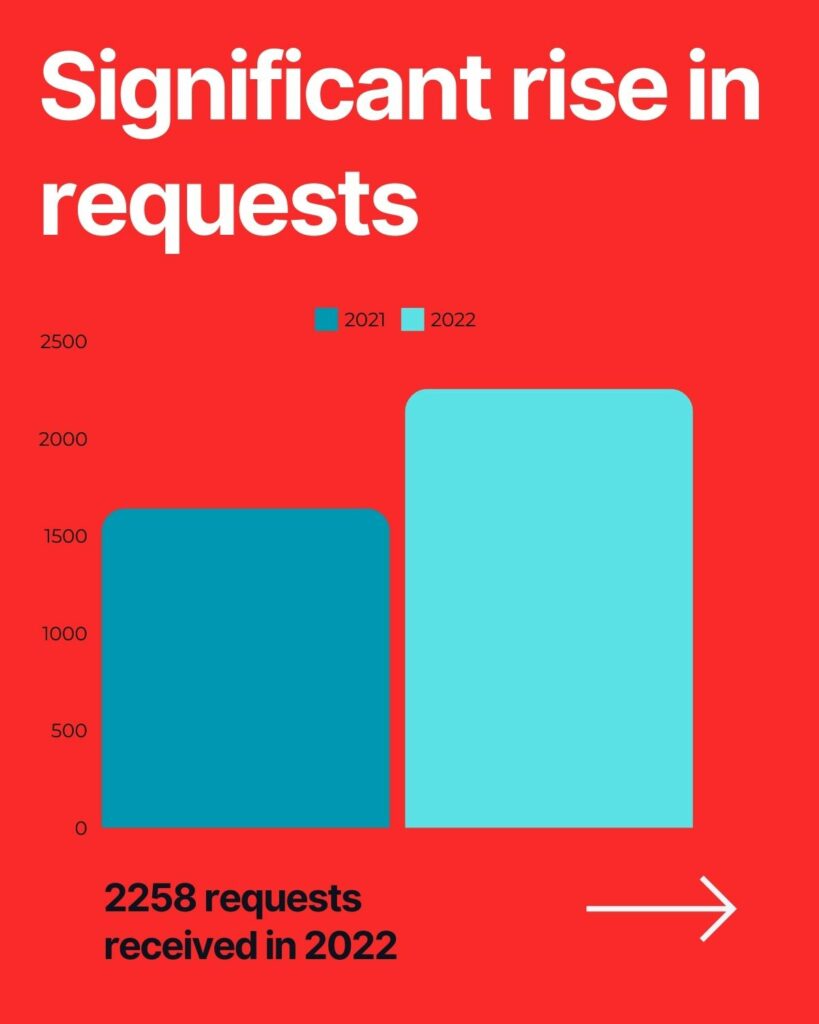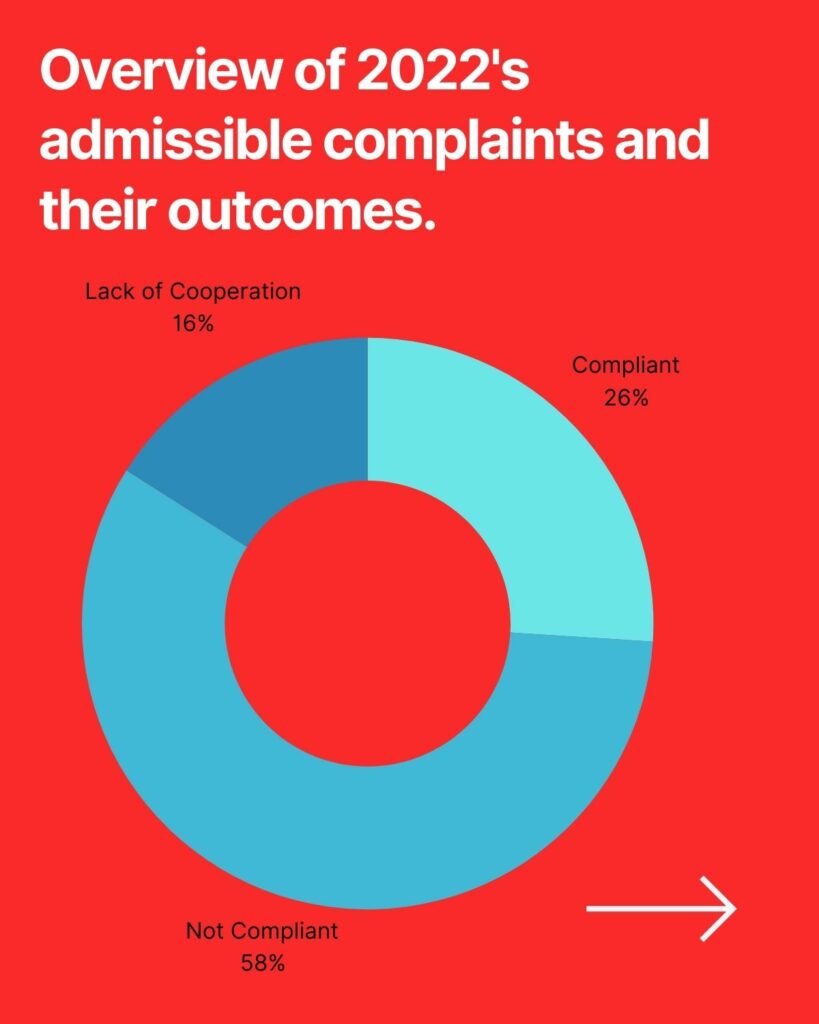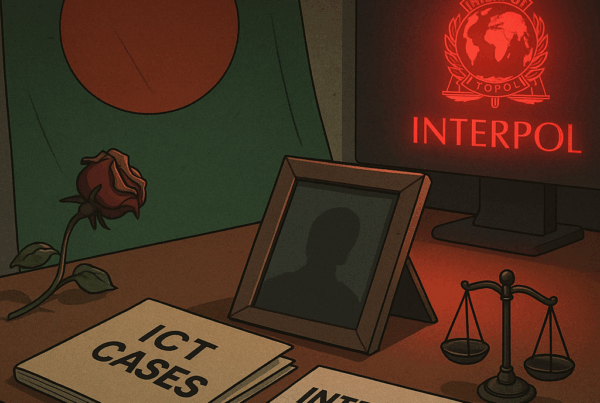The 2022 Annual Report of the Commission for the Control of INTERPOL’s Files (CCF) presents detailed insights into the year’s activities, highlighting a significant uptick in the number of requests received by the CCF.
The rise in request volumes
Over the past year, the CCF has seen a substantial increase in requests, with figures rising from 1,643 in 2021 to 2,258 in 2022. This surge demonstrates an increased awareness of rights among those subjected to INTERPOL’s notices and diffusions.

Profile of the requests received
In 2022, the CCF processed a total of 1,597 admissible access requests and complaints, with 1,054 concerning applicants subject to data in INTERPOL’s files:
- Access Requests: 401 (50% of the 795 admissible access requests)
- Complaints: 653 (81% of the 802 admissible complaints)
Overview of compliance findings
Of the 470 admissible complaints reviewed for compliance:
- 271 cases (58%) were explicitly found non-compliant after thorough examinations, highlighting issues that contravened INTERPOL’s rules.
- 75 cases (16%) were found non-compliant due to a lack of cooperation from the National Central Bureau(s) source of the data. These bureaus failed to confirm the validity of the proceedings for notices or diffusions.
- 124 cases (26%) were found to be compliant, indicating that the data met INTERPOL’s rules.
Despite fluctuations in the number of requests and the complexities involved in each case, the percentage of cases found compliant has remained relatively stable over the years, hovering around 26-28%.

Delegation of powers and interim decisions
In 2022, there was a notable increase in the number of interim decisions taken by the CCF. Specifically, the Rapporteur and/or the Chairperson made 364 decisions between sessions, based on powers delegated by the Requests Chamber. These decisions predominantly involved the interim blocking of access by National Central Bureaus to data under challenge, pending further analysis. Notably, this is the first time that statistics on the number of in-between session decisions have been published, highlighting the CCF’s commitment to transparency in its operations.
Delegations of power within the CCF are granted to its Secretariat, Rapporteurs, and Chairperson based on clear criteria designed to streamline the Commission’s operations. These delegated powers are critical for the CCF’s ability to respond swiftly and effectively to complex situations as they arise. The Commission ensures transparency and accountability by systematically informing all members about actions taken under these delegations, with updates made as necessary to align with the evolving needs of the Commission and its overarching objectives.
Comparing compliance: figures from the CCF vs. NDTF
While comparisons can sometimes lead to misleading conclusions, it’s illuminating to examine the contrast between the high rate of non-compliance decisions by the CCF and the compliance rate reported by INTERPOL’s Notices and Diffusions Task Force (NDTF). Recent statistics from INTERPOL, updated in May 2024, reveal:
- Total Refusals/Cancellations for 2023: 1,603 out of 23,969 published notices and diffusions.
- Article 2 violations (Human Rights): 125
- Article 3 violations (Political, military, religious, or racial): 179
- Other reasons (e.g., lack of crime criteria fulfillment or cooperation): 1,299
Thus, approximately 6.69% of the Red Notices and Wanted Persons Diffusions published in 2023 were refused or canceled due to non-compliance issues. This figure stands in stark contrast to the 57.66% of the cases reviewed by the CCF that were found non-compliant.
This significant disparity in non-compliance rates between the NDTF and the CCF can be attributed to their differing roles and points of intervention within INTERPOL’s process. The NDTF conducts preliminary checks before publication of Red Notices and Wanted Persons Diffusions, primarily using data provided directly from the source, which seeks to filter out any obvious non-compliance issues. In contrast, the CCF, as an independent body, engages in a more exhaustive review process post-publication, involving not only the initial data but also detailed arguments presented by individuals. Consequently, the CCF’s thorough review process is more likely to identify a wider array of non-compliance issues, resulting in a significantly higher rate of identified non-compliance.





